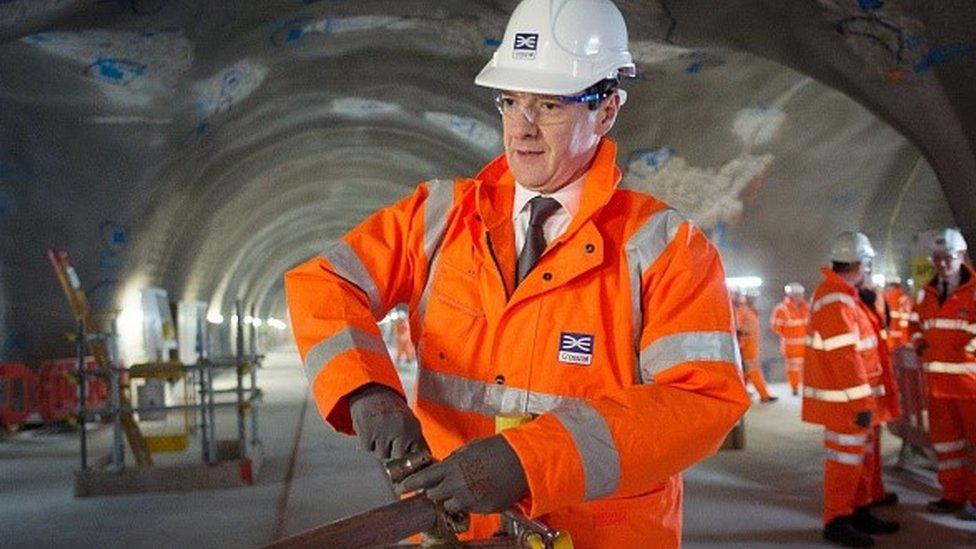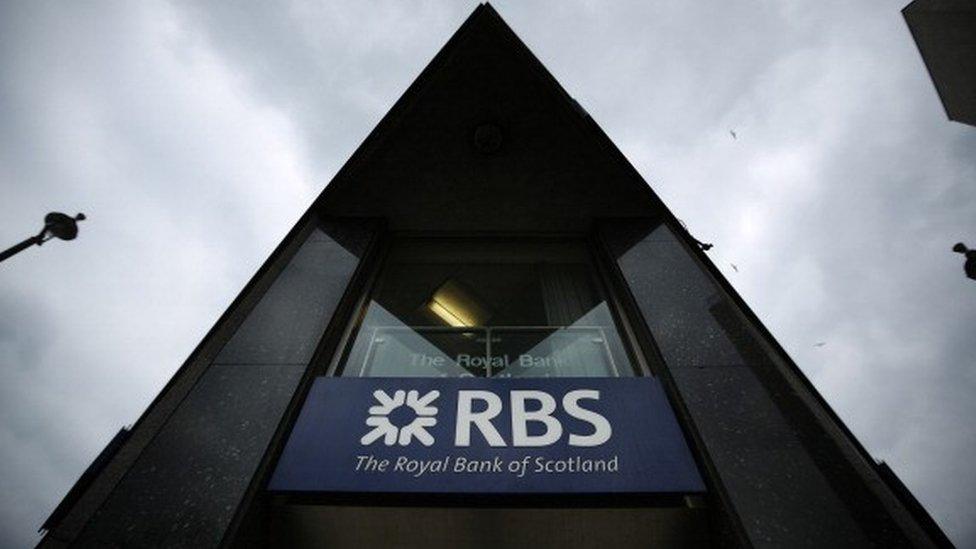Osborne and the two Budget numbers that matter
- Published
- comments

It doesn't take long reading through last July's Budget and November's Autumn Statement to stumble across the difficult bits - what some have described as the "stealth taxes" the Treasury likes to announce in a slightly quieter voice compared to the spending commitments.
There is the apprenticeship levy on businesses which will raise £3bn by 2019-20.
Higher stamp duty tax on buy-to-let properties and second homes.
Higher levels of insurance premium tax - which increases costs for anyone with a car or house insurance policy.
Changes to taxes levied on banks which will raise a further £1.7bn.
Taxes
There is likely to plenty more where that came from in tomorrow's Budget.
I would watch for fuel duty increases matching the rate of inflation (many close to the chancellor doubt he will take the political pain of more rapid increases), further changes to insurance premiums, higher taxes on cigarettes and alcohol (so-called "sin taxes"), the attempted closure of tax avoidance loop holes and higher business taxes.
As one Treasury source pointed out to me, yes, businesses might be irritated by the upward pressure on taxes but frankly "their support hasn't got anywhere much else to go".
The government doesn't imagine a warm embrace for John McDonnell from the UK's titans of industry.
George Osborne, an instinctive tax cutter, imposes tax rises for a reason.
His "big project" for which he wants to be remembered is "balancing the books" by 2020 and even delivering a surplus.
That means the government earning as much as it spends and thereby eliminating the deficit.
Debt burden
So, tomorrow, look for that 2019-20 borrowing figure.
It is the one that matters to the chancellor and the one which he will go through some pain now to achieve.
Whilst gently pointing out that the overall debt burden for the government totals more than £1.5trn - costing the government about £1bn a week in debt interest payments.
At the time of the autumn statement, the Office for Budget Responsibility predicted a government budget surplus by the end of this Parliament of £10bn.
Mr Osborne will do all he can to hit that target.
Even though - in total government expenditure terms - £10bn is little more than a rounding error.
And achieving it has become harder as economic growth has slowed and wage increases have eased.
Both reduce government income. And therefore put an upward pressure on borrowing.
Back burner
Tomorrow's Budget comes against a backdrop of what Mr Osborne calls the "dangerous cocktail" of economic gloom 2016 has presented us with.
The fall in the stock market largely sparked by fears over global growth could mean a £2 billion reduction in government tax revenues according to the Institute for Fiscal Studies.
And, lower share prices and volatile markets also make government asset sales far harder.

The government has delayed plans to offload part of its RBS stake
The government has already delayed the sale of the final tranche of Lloyds Bank it still owns, raising around £2bn.
It has also placed firmly on the back burner plans to offload part of its 73% stake in the Royal Bank of Scotland - which was due to raise another £5bn by next year.
Wage increases 1% lower than forecast (and the Bank of England predicts they will be 0.75% below forecast) means £5bn less in tax revenues by 2020.
So, hitting that surplus figure is getting harder.
And tax rises will have to be higher, and public sector cuts (though delayed until the end of the parliament) deeper, than Mr Osborne thought last year.
Reputation
To judge whether the Treasury is on track to hit its surplus there is a second figure to focus on tomorrow.
That is the amount of government borrowing undertaken this year.
The Chancellor's target is £73.5bn.
In the more optimistic days of the autumn statement - just four months ago - the government appeared on target.
But the poorer economic news since then has affected tax receipts and put that number under pressure.
By January, the government's borrowing figure had already hit £66.5bn. Yes, down nearly 14% but suggesting a year-end figure closer to £80bn than £70bn.
Can Mr Osborne pull that figure back to target? And what tax rises and public sector cuts - the pain bit - is he willing to endure?
At stake is his economic reputation. And the small matter of the security of Britain's economic future.